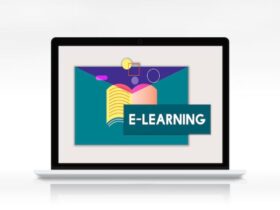To become an online teacher without a degree, it is possible to teach without certification or teaching experience. Some tutoring platforms require a high school diploma or a subject-specific certification, while others will ask for an accreditation in teaching English as a Foreign Language (TEFL) certification.
Additionally, teaching experience is not always necessary, and you can tutor online without a degree as long as you have the required qualifications in a specific subject you want to teach. Becoming an online teacher without a degree may seem like an impossible task, but it is easier now than before.
With the increased demand for online education, several platforms are now offering opportunities to individuals who are interested in teaching without having a degree. We will explore different options on how to become an online teacher without a degree and the requirements to achieve this goal.
Requirements For Teaching Online Without A Degree
Becoming an online teacher without a degree is possible with the right certification. While subject-specific or TEFL certifications can be helpful, they are not always required for online tutoring. Platforms like Preply, Cambly, and Palfish offer opportunities for those without a degree to teach online and earn money.
Requirements for Teaching Online Without a Degree
Are you considering becoming an online teacher without a degree? It might seem daunting, but with the right certifications and skills, you can start teaching online in no time. In this article, we will discuss the requirements for teaching online without a degree and the essential skills you need to succeed.
Types Of Certification And Accreditation Necessary
Although you don’t need a degree to teach online, you must have the right certifications and accreditations to meet the platform’s requirements. Here are some types of certification and accreditation you might need:
- TEFL Certification: Teaching English as a Foreign Language certification is necessary if you want to teach English abroad.
- GED: General Educational Development test is a high school diploma equivalent and sometimes required for tutoring positions.
- Subject-Specific Certification: Some platforms require certification in specific subjects, such as math, science, or history.
Ensure you have the necessary certification and accreditation for the platform you want to work with.
Essential Skills Required
When it comes to online teaching, having a degree isn’t everything. You need to have specific skills to thrive in this type of job. Below are the essential skills you must-have:
- Excellent Communication Skills: As you will be teaching online, you should be able to communicate clearly and effectively through written and verbal communication.
- Patience: You must have exceptional patience when dealing with students online as they may come from different backgrounds and have different learning styles.
- Organizational Skills: Online teaching requires planning and organization skills to keep track of your students’ progress and prepare lesson plans.
- Flexibility: As an online teacher, you should adapt to changes, be responsive to feedback, and modify your teaching style to meet your students’ needs.
- Technical Skills: Online teaching requires technical skills such as computer literacy, proficiency in using teaching tools and platforms, and troubleshooting common technical problems.
- Adaptability: The online tutoring world is always evolving. Therefore, as an online teacher, you must be ready and willing to learn new things and adapt to new platforms and tools.
In conclusion, you don’t need a degree to become an online teacher. By obtaining the necessary certification and accreditation and honing your essential skills, you can become an expert and successful online teacher.

Credit: www.seenicwander.com
Platforms And Resources For Teaching Online
Several online platforms offer teaching opportunities without requiring a degree. Some popular options include Preply, Cambly, and Palfish. While certifications may be required for specific subjects, it is possible to become an online tutor without a degree. Focus on teaching subjects such as English, math, science, history, or foreign languages and consider earning a TEFL certification to become an online English teacher.
Popular Platforms For Online Teaching
There are several platforms where you can start teaching online. Preply is one of the popular platforms where you can find online English teaching jobs. If you are multilingual, you can join language exchange platforms like Cambly, Palfish, and Italki that offer online tutoring services. You can also apply to teach English to non-English speakers on Acadsoc, Amazing Talker, and Open English. Skima Talk is another platform that allows you to teach English to professionals in South Korea.
How to Find Online Teaching Jobs
Before starting your teaching career online, determine what kind of subjects you would like to teach. Some of the popular subjects to teach online include English, math, science, history, and foreign languages. Once you have identified your strong suits, you can start searching for online jobs on websites like Preply, Cambly, PalFish, and Italki. Alternatively, you can find online work on general job portals, such as Indeed and Glassdoor. You can also consider advertising your services to social media platforms like Twitter and Facebook.
Resources For Enhancing Your Skill
One of the essential aspects of teaching online is having the right skills and knowledge. While having a degree or certification in a particular subject is not always a requirement for online tutoring, it can be helpful. If you are looking to enhance your teaching skills, you can take online courses and get certified. For instance, you can take a Teaching English as a Foreign Language (TEFL) course that is a widely recognized qualification for teaching English online. Platforms like Preply offer their tutors access to course providers such as International TEFL Academy, where you can take TEFL courses and gain accreditation. You can also find a wide range of courses and resources on websites like Coursera, Udemy, and Skillshare.
In conclusion, online teaching is a lucrative and fulfilling career that anyone can start without a degree. With the right skills, creativity, and dedication, you can make a significant impact on your students’ lives while earning a decent income online.
Best Subjects To Teach Online
Teaching online has become an increasingly popular and lucrative profession for many people around the world. With the advancement of technology, anyone can teach online with or without a degree. However, the crucial question is what subject to teach online? In this section, we will look at the most popular subjects demanded by students and how to identify the subject that is right for you.
Popular Subjects Demanded By Students
Some of the popular subjects that students often seek help with include: English, Math, Science, History, and Foreign Languages. These are all subjects that have a broad appeal, and there is always a demand for these topics. However, you do not have to limit yourself to these subjects.
What Subject Is Right For You?
When deciding on the subject to teach, it is essential to identify your interests and passions. You may have a degree or certification in a particular field that can make you an expert in that area. Or, you may have a hobby or skill that you excel at that can be turned into a teaching opportunity.
The goal is to find a subject that you are passionate about, and you feel confident in your ability to teach. This will make the teaching experience enjoyable for both you and your students, and it will increase your chances of success as a teacher.
Pros And Cons Of Teaching Online Without A Degree
Teaching online without a degree comes with pros and cons. While it is possible to become an online teacher without a degree, certain subject-specific certifications like TEFL certification are required for it. Non-degree holders can gain experience and a decent income but may face limited opportunities for career advancement.
Pros and Cons of Teaching Online Without a Degree
Teaching online without a degree is becoming increasingly popular as more people are opting for the flexibility and convenience that comes with this profession. However, like any other career path, it has its pros and cons.
H3: Pros of Teaching Online Without a Degree
Teaching online without a degree offers some advantages, making it a lucrative career path for many. Here are the pros of teaching online without a degree.
H4: Flexibility and Convenience
One of the biggest advantages of teaching online without a degree is that it offers flexibility and convenience. As long as you have a computer and a reliable internet connection, you can work from anywhere in the world, and at any time that suits your schedule. You can work part-time or full-time, depending on your availability.
H4: No Educational Requirements
Another benefit of teaching online without a degree is that there are no educational requirements. While having a degree or certification in a specific subject area can be helpful, it is not always a requirement for online teaching. This means that anyone with a passion for teaching can do it, regardless of their educational background.
H4: Higher Earning Potential
Teaching online also offers higher earning potential, as you can work for multiple platforms simultaneously. This means that you can earn more money than you would in a traditional teaching position.
H3: Cons of Teaching Online Without a Degree
Despite the many benefits of teaching online without a degree, there are also some cons to consider. Here are the cons of teaching online without a degree.
H4: No Job Security
One of the biggest cons of teaching online without a degree is that there is no job security. Many online teaching positions are freelance or contract-based, which means that they may not offer benefits or a stable income.
H4: No Career Growth
Another disadvantage of teaching online without a degree is that there may be limited opportunities for career growth. While some platforms offer promotions and advancements, others may not have any career development opportunities.
H4: Limited Subject Areas
Finally, teaching online without a degree may limit the subject areas you can teach. While some platforms offer a wide variety of subject areas, others may only hire tutors for specific subjects and may require specific qualifications.
In conclusion, teaching online without a degree may offer flexibility, convenience, and higher earning potential, but it also has its downsides, such as limited job security, career growth and subject areas. It is essential to weigh the pros and cons carefully before deciding whether online teaching is right for you.

Credit: teflhero.com
Frequently Asked Questions For How To Become An Online Teacher Without A Degree
Do You Need A Degree For Online Teaching?
No, it is possible to become an online teacher without a degree. While having a degree or certification can be helpful in some cases, it’s not always required for online teaching. Tutors may need a GED, high school diploma, or subject-specific certification, and some platforms may require TEFL certification to teach English online.
Popular subjects to teach online include English, math, science, history, and foreign languages.
How Do I Become An Online Teacher With No Experience?
Yes, it is possible to become an online teacher without experience or a degree. You can find online teaching jobs through platforms like Preply, Cambly, and Palfish. While having a degree or certification can be helpful, it is not always required for online tutoring.
Popular subjects to teach online include English, math, science, history, and foreign languages. Additionally, many platforms will require a GED or subject-specific certification. It’s recommended to have an accredited TEFL certification and basic technology skills.
Can You Become An Online Tutor Without A Degree?
Yes, it is possible to become an online tutor without a degree. While having a degree in a specific subject may be beneficial, it is not always required by tutoring platforms. Most online tutoring platforms will require you to have a GED, high school diploma or a subject-specific certification.
Certifications like TEFL (Teaching English as a Foreign Language) are necessary for online English tutoring jobs. Some popular subjects to teach online include English, math, science, history and foreign languages.
What Can I Teach Online?
There are many subjects you can teach online such as English, math, science, history, and foreign languages. It is possible to tutor online without a degree, although some platforms may require a GED or certification in a particular subject. To become an online English teacher, a TEFL certification may be needed.
Find your passion and consider getting certified to start teaching online.
Can You Become An Online Teacher Without A Degree?
Yes, you can become an online teacher without a degree. While having a degree or certification in a particular subject can be helpful, it is not always a requirement for online teaching.
Conclusion
Becoming an online teacher without a degree is achievable through various platforms and subject-specific certifications. While a degree or certification may be helpful in some cases, it is not always a requirement for online tutoring. Choosing to teach a subject that you are knowledgeable about and passionate about will increase your chances of success as an online teacher.
With the right qualifications, technology, and dedication, anyone can become a successful online teacher and enjoy a rewarding career helping others learn and grow.












































Leave a Reply